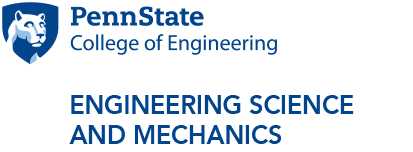Speaker Bio and Abstract
Speaker
Brian J. Olson, Ph.D.
Section Supervisor, Dynamics (A1C-8)
Air and Missile Defense Sector (AMDS)
Office: (240) 228-2469
Mobile: (240) 461-9577
Brian.Olson@jhuapl.edu
Seminar Title
“A Physics-based Test and Evaluation Methodology for High-fidelity Dynamic Thrust Measurements of Ground Tested Propulsion Systems"
Abstract
Next-generation "hit-to-kill" guided interceptor missiles require stringent thruster performance of the kinetic warhead Divert and Attitude Control System (DACS) to defeat stressing enemy threats in the exoatmoshpere. These solid propellant propulsion systems are hotfired in a static ground test configuration to assess critical thrust response parameters and demonstrate system performance under required environmental and operational conditions. High fidelity dynamic thrust measurements require an integrated approach involving a custom 6-degree-offreedom thrust test stand, modal characterization of the ground test configuration, and an inverse dynamics methodology to estimate free-flight representative thruster forces based on a network of thrust stand force sensors. Static accuracy of the thrust stand is achieved by a static calibration process, which accounts only for constant error sources such as tolerances, sensor error,misalignment, and so on. Dynamic thrust accuracy involves compensation of vibration characteristics (test artifacts) of the entire test configuration structure: motor, calibrated thrust stand, and test cell. An inverse force identification methodology is used to estimate the net dynamic forces generated by axial pairs of DACS thrusters using measurements from a planar array of thrust stand force sensors. The inverse operation exploits analytical frequency response functions (experimentally derived from modal surveys of the test configuration) that capture the force transmissibility from thruster inputs to thrust stand sensor outputs of the pre- and post-hotfire motor configuration. Because the test configuration frequency response changes as the test duty cycle evolves (caused by propellant mass loss and other factors), a temporal frequency response technique is used to account for vibration modes that migrate during the test. This dynamic compensation process directly targets structural vibration modes (test artifacts) for removal without appreciably affecting the “true" thrust (or flight-configuration self-induced vibration environment), which effectively increases the thrust stand measurement bandwidth capability and significantly improves the resolution of dynamic thrust events compared to conventional methodologies. The force identification methodology has been applied to several DACS technologies throughout the risk reduction, system performance, demonstration, design verification, and qualification phases of development.
Speaker Bio
Dr. Brian Olson is a Senior Engineer, Section Supervisor, and technical recruiter in the Air and Missile Defense Sector at The Johns Hopkins University Applied Physics Laboratory (JHU/APL), the largest university affiliated research center in the nation. Dr. Olson joined JHU/APL in 2006 after receiving the BS, MS, and PhD degrees in Mechanical Engineering from Michigan State University. He specializes in dynamics and vibration of mechanical systems and leads interdisciplinary engineering teams to solve complex problems of national importance.



